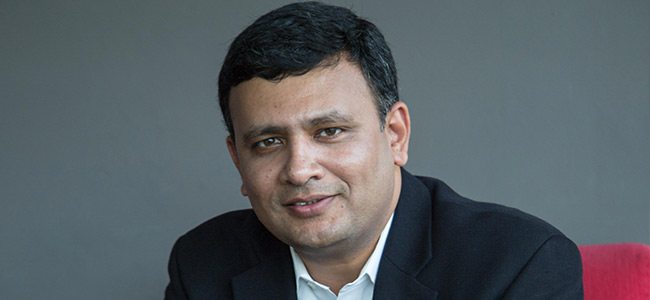Ask Me Anything (AMA): Rahul answers.
When we learn something new or venture into territories unknown, we are bound to have questions popping up in our minds. If it is anything related to Product Management, who better than Director of Programs and, Faculty Rahul Abhyankar to address our queries and doubts. With his rich experience in the Product Management space, his answers have a wealth of knowledge hidden in them. We got Rahul to answer a couple of questions on how to become better than a good Product Manager.

Q: More often, consistent decision making and behavior are highlighted as desirable traits for Product Managers(PM). However, a new PM may have to make some inconsistent calls to learn by trial and error. And in the hothouse atmosphere of modern-day corporates, with rapid organizational changes and strategic turns, will a Product Manager be allowed to make mistakes, learn from them and develop into a top 1% person?
RA: No one is guaranteed to get all decisions consistently right; not even Steve Jobs had that for him. However, consistency is more about behavior and the way we make decisions, the thought and process we follow to make decisions. In cross-functional situations that product managers find themselves leading, this is critical to establish and inspire trust within the team.
Whether PMs are allowed to make mistakes and learn from them, largely depends on the culture of an organization. With the principles of Lean Startup espousing rapid experimentation, and as more and more companies start to embrace the agile mindset, hopefully this will change - where the failure of an experiment does not get equated to the failure of the person.
Q: Should a Product Manager be a specialist in the product domain, or a generalist with a host of "soft" skills - negotiation, leadership, communication, etc - with just enough technical knowledge to be dangerous? For a person to develop in-depth technical knowledge and become an all-round player seems to be a tall ask.
RA: The attributes of a PM form a three-legged stool - functional skills (how to be a good PM and all that the job entails), domain knowledge (core understanding of the state of a particular industry and challenges faced by customers, knowledge of the players in the industry, the technology stack that relates to that domain, etc.) and leadership skills (communication, executive presence, team influence, etc.)
If you have only one of the three, or two of the three, obviously that is not ideal and the stool is going to be shaky. However, at different times in your career, different things become important.
For a PM with less than five years of experience, functional and domain are important to even establish credibility for yourself. You should be good at communication, but if you just have the soft skills and are weak on the other two, the engineering team will sniff that from a mile away. Most people transition from engineering roles to product management. So, in a way, they are already familiar with the domain.
As one starts getting more responsibility and moves up in the career path, the soft skills start to become more and more important. You already know what product management is; you already know your domain to a great degree; now, your success is based on how well you are able to lead the organization and drive the business.
Now as far as technical knowledge goes, it should not be knowledge for its own sake, but a view of what does the technology enable for the customer. What is the technology stack for the solution that creates partnership opportunities? You cannot know everything about the technology, certainly not as much as the engineers and the architects, but you can connect the dots from the technology to customer value. This perspective is not common.
Q: What does it take to be a top Product Manager?
RA: I came across this question on Quora and it got me thinking. It’s useful to understand what distinguishes the top 1% from the top 10% in any field. The top 10% in any field are likely some of the top notch performers in that field. The margin of difference is very small. Yet there must be that extra special “it” factor that separates the top 1% from the rest, that gives the top 1% a well-earned exalted status. That is why we speak of Michael Jordan, Roger Federer, Serena Williams and such people in a different breath from their peers in the game.
What is the special “it” factor?
In summary:
● Consistent good decision-making and behavior that earns credibility and trust
● Leadership and selflessness in the interest of the team
● Confidence in one’s own abilities
● All-round impact across the end to end product lifecycle
● Strong work ethic and no-compromise attitude
● Coachable and aligned with a higher vision
Here’s more from Rahul on what it takes to be the top 1% Product Manager.
RA: No one is guaranteed to get all decisions consistently right; not even Steve Jobs had that for him. However, consistency is more about behavior and the way we make decisions, the thought and process we follow to make decisions. In cross-functional situations that product managers find themselves leading, this is critical to establish and inspire trust within the team.
Whether PMs are allowed to make mistakes and learn from them, largely depends on the culture of an organization. With the principles of Lean Startup espousing rapid experimentation, and as more and more companies start to embrace the agile mindset, hopefully this will change - where the failure of an experiment does not get equated to the failure of the person.
Q: Should a Product Manager be a specialist in the product domain, or a generalist with a host of "soft" skills - negotiation, leadership, communication, etc - with just enough technical knowledge to be dangerous? For a person to develop in-depth technical knowledge and become an all-round player seems to be a tall ask.
RA: The attributes of a PM form a three-legged stool - functional skills (how to be a good PM and all that the job entails), domain knowledge (core understanding of the state of a particular industry and challenges faced by customers, knowledge of the players in the industry, the technology stack that relates to that domain, etc.) and leadership skills (communication, executive presence, team influence, etc.)
If you have only one of the three, or two of the three, obviously that is not ideal and the stool is going to be shaky. However, at different times in your career, different things become important.
For a PM with less than five years of experience, functional and domain are important to even establish credibility for yourself. You should be good at communication, but if you just have the soft skills and are weak on the other two, the engineering team will sniff that from a mile away. Most people transition from engineering roles to product management. So, in a way, they are already familiar with the domain.
As one starts getting more responsibility and moves up in the career path, the soft skills start to become more and more important. You already know what product management is; you already know your domain to a great degree; now, your success is based on how well you are able to lead the organization and drive the business.
Now as far as technical knowledge goes, it should not be knowledge for its own sake, but a view of what does the technology enable for the customer. What is the technology stack for the solution that creates partnership opportunities? You cannot know everything about the technology, certainly not as much as the engineers and the architects, but you can connect the dots from the technology to customer value. This perspective is not common.
Q: What does it take to be a top Product Manager?
RA: I came across this question on Quora and it got me thinking. It’s useful to understand what distinguishes the top 1% from the top 10% in any field. The top 10% in any field are likely some of the top notch performers in that field. The margin of difference is very small. Yet there must be that extra special “it” factor that separates the top 1% from the rest, that gives the top 1% a well-earned exalted status. That is why we speak of Michael Jordan, Roger Federer, Serena Williams and such people in a different breath from their peers in the game.
What is the special “it” factor?
In summary:
● Consistent good decision-making and behavior that earns credibility and trust
● Leadership and selflessness in the interest of the team
● Confidence in one’s own abilities
● All-round impact across the end to end product lifecycle
● Strong work ethic and no-compromise attitude
● Coachable and aligned with a higher vision
Here’s more from Rahul on what it takes to be the top 1% Product Manager.
Facebook
Twitter
LinkedIn
Tagged blogs




